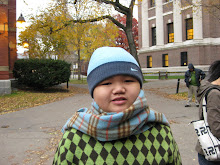I watched Les Miserables when I was in Lower Primary when I visited my Aunty in NYC. Last month my friend sent me a you tube –Susan Boyle, I Dreamt A Dream-that I started to crave for Les Miserables again. So last weekends, Mum managed to get the DVD from HMV and I have been spending my nights in watching this DVD continuously.
Now I am going to introduce to you, my dearest friends, this Worldclass Musical Play which I am so fond of -Les Miserables by Victor Hugo. And I really hope to watch it LIVE again.
Here are some research that I gathered from internet:
Victor Hugo (1802-1885), novelist, poet, and dramatist, is one of the most important of French Romantic writers. Among his best-known works are The Hunchback of Notre Dame(1831) and Les Misérables(1862).
Les Miserables focuses on the struggles of ex-convict Jean Valjean and his experience of redemption. It examines the nature of law and grace, and expounds upon the history of France, architecture of Paris, politics, moral philosophy, antimonarchism, justice, religion, and the types and nature of romantic and familial love. The story is historical fiction because it contains factual, historic events, including the Paris Uprising of 1832 (often mistaken for the much earlier French Revolution).
Jean Valjean, released on parole after 19 years on the chain gang, finds that the yellow ticket-of-leave he must, by law, display condemns him to be an outcast. Only the saintly Bishop of Digne treats him kindly and Valjean, embittered by years of hardship, repays him by stealing some silver. Valjean is caught and brought back by police, and is astonished when the Bishop lies to the police to save him, also giving him two precious candlesticks. Valjean decides to start his life anew.
The most important theme the novel examines is that of transformation, in the individual and in society. Jean Valjean, the chief protagonist, is transformed from a misanthropic and potentially violent ex-convict to a man capable of heroic love and self-sacrifice. The force that transforms him is love. The Bishop of Digne offers Valjean unconditional love, trusting the former criminal with his life and giving him all that he can. Valjean finds inspiration for an entirely new life from this example. He learns to put another person first when he raises...
I may not be a good performer but I am trying to be a cultured appreciator!

No comments:
Post a Comment